As a professional pastry chef, I know how to win over anyone with dessert. My secret? Richy, nutty brown butter! Whether it’s gooey brown butter rice krispies, or one of my ultimate favorites, cinnamon rolls with brown butter filling, and of course, these brown butter snickerdoodle cookies!
Made with browned European butter for a rich, buttery flavor, these soft and chewy cookies are even more delicious than the classic. With their signature snickerdoodle tang and cinnamon sugar coating, this recipe is ridiculously easy to make—no chilling or mixer required. They’re perfectly chewy, gooey, and tender every time. Trust me, everyone will be asking if they came from a bakery!
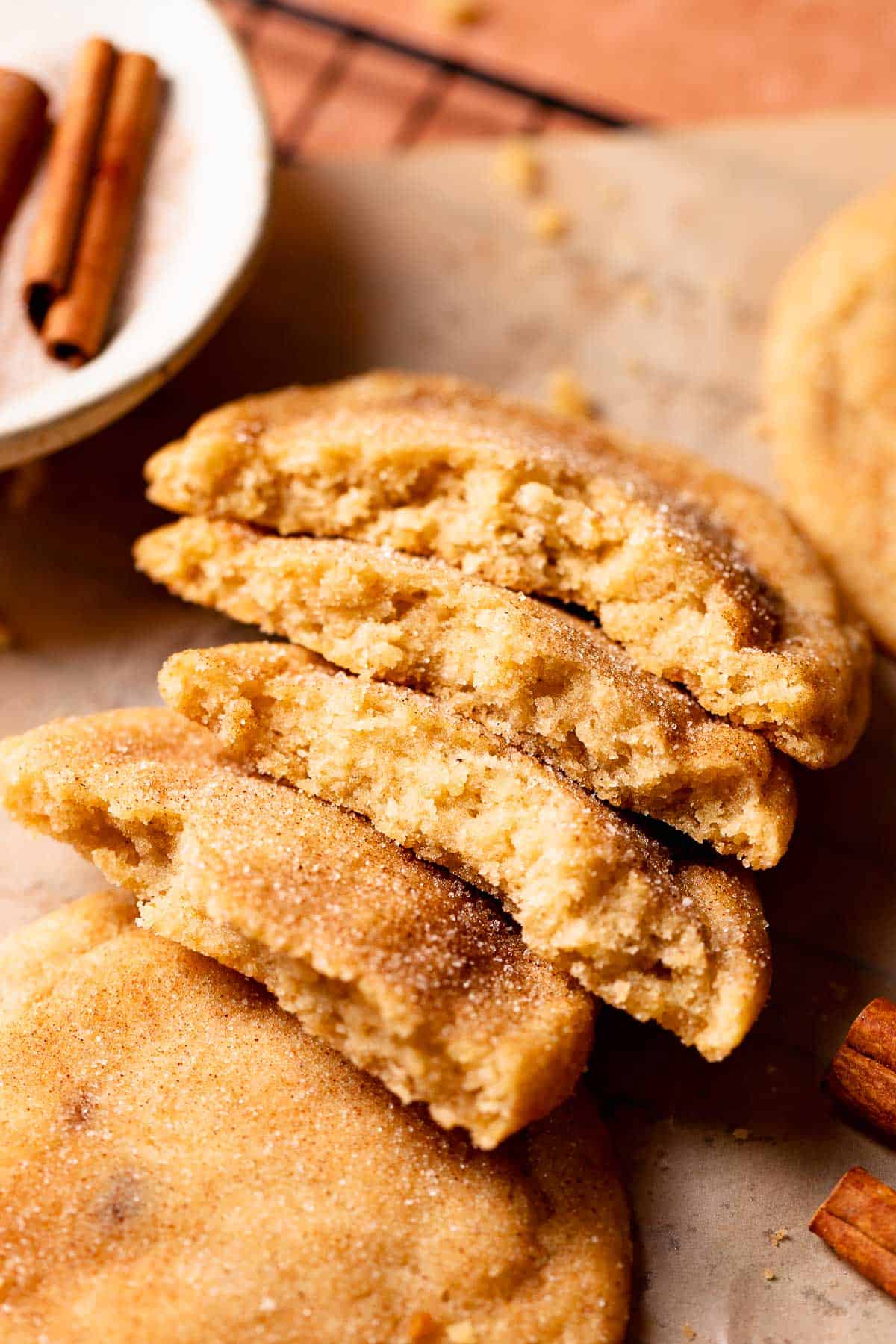
—5 Star Review!—
“This is hands down the best snickerdoodle cookie recipe I’ve ever made. I am obsessed with how chewy and soft they are and have made them at least 5 times in the past month!” Mary R.
Table of Contents
Let’s Bake Them!
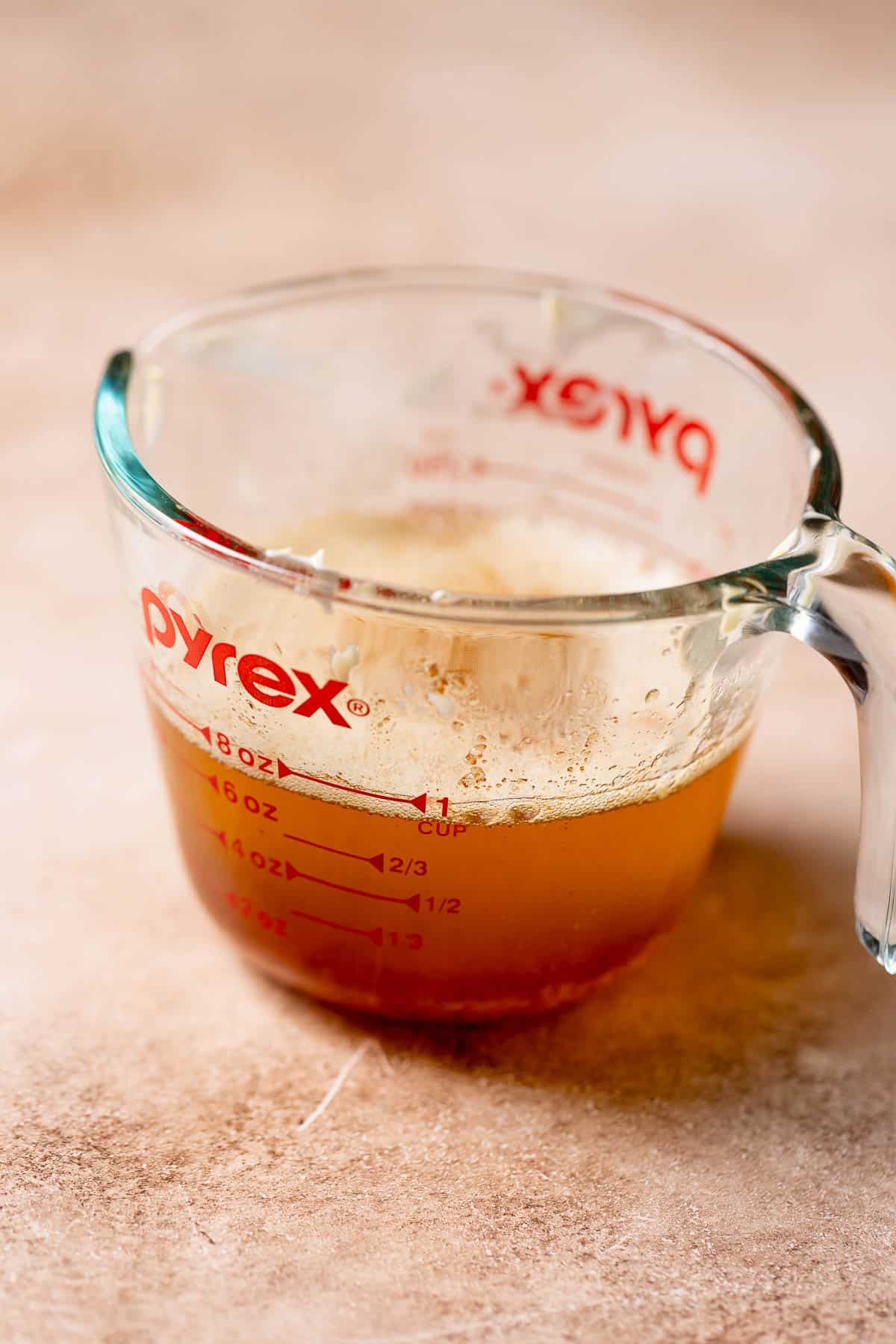
1
Brown the butter. Watch it carefully while it’s cooking…you don’t want it to be any darker than this amber color shown above, or it will have a bitter, burnt flavor!
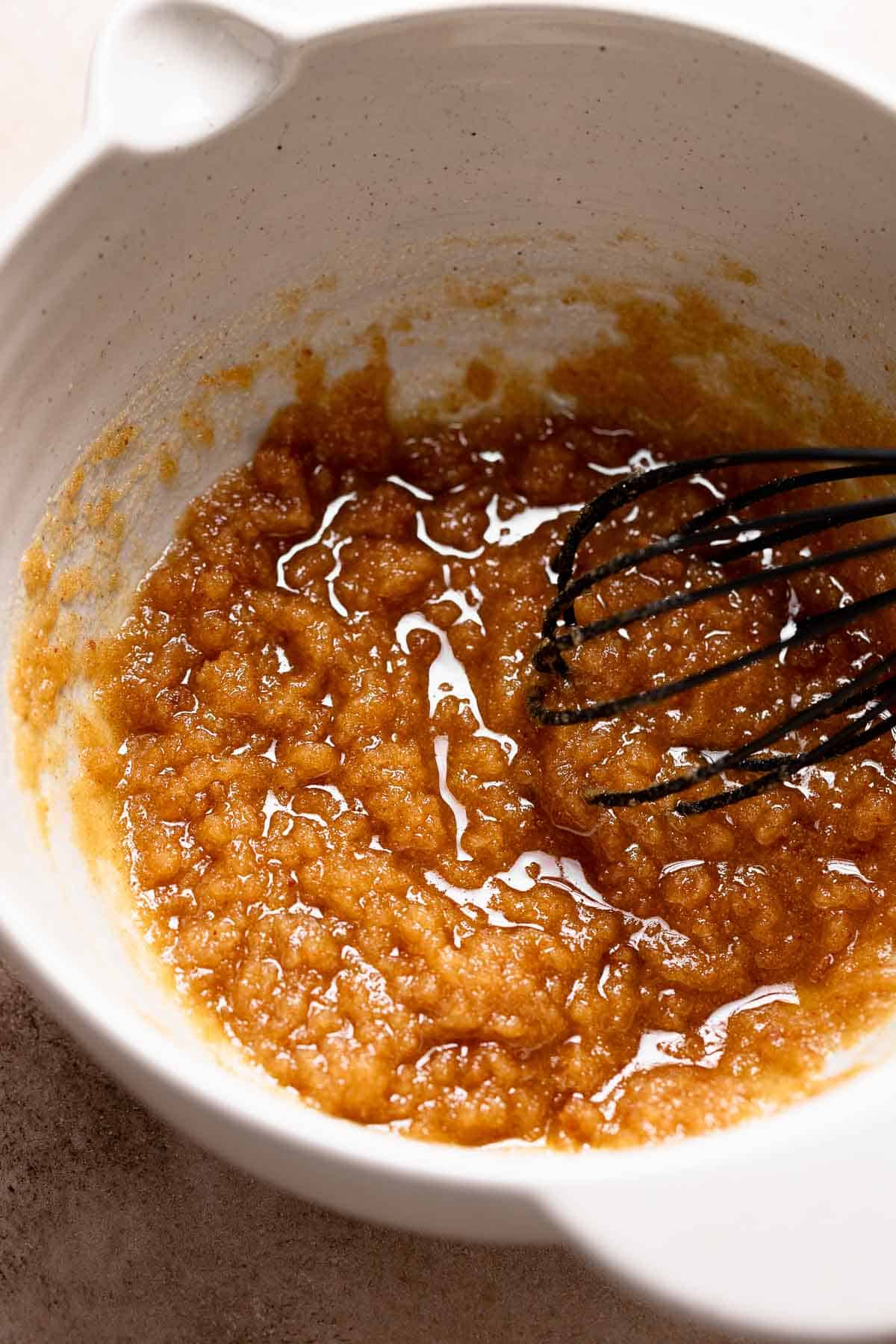
2
Whisk in the sugars. Before this step, it’s crucial to let the butter cool to room temperature. Butter that is too warm will lead to greasy cookies or cookies that spread too much when baking!
With over 500 five-star reviews, my chewy brown butter pumpkin snickerdoodles are made with the same soft cookie dough as this recipe, which is why I had to make them!
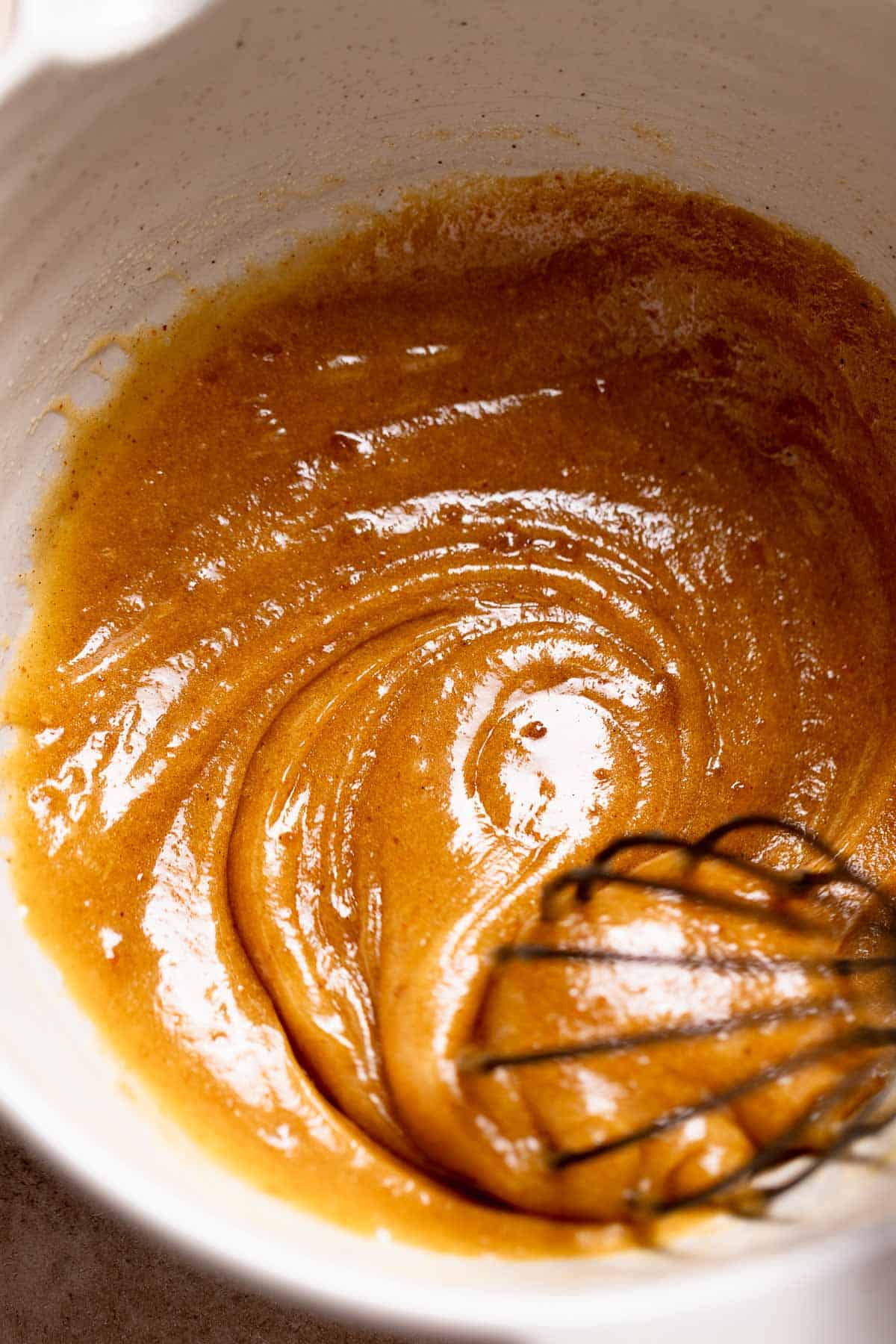
3
Whisk in the eggs and vanilla paste. When the mixture is thick and leaves a trail when whisked, stop mixing.
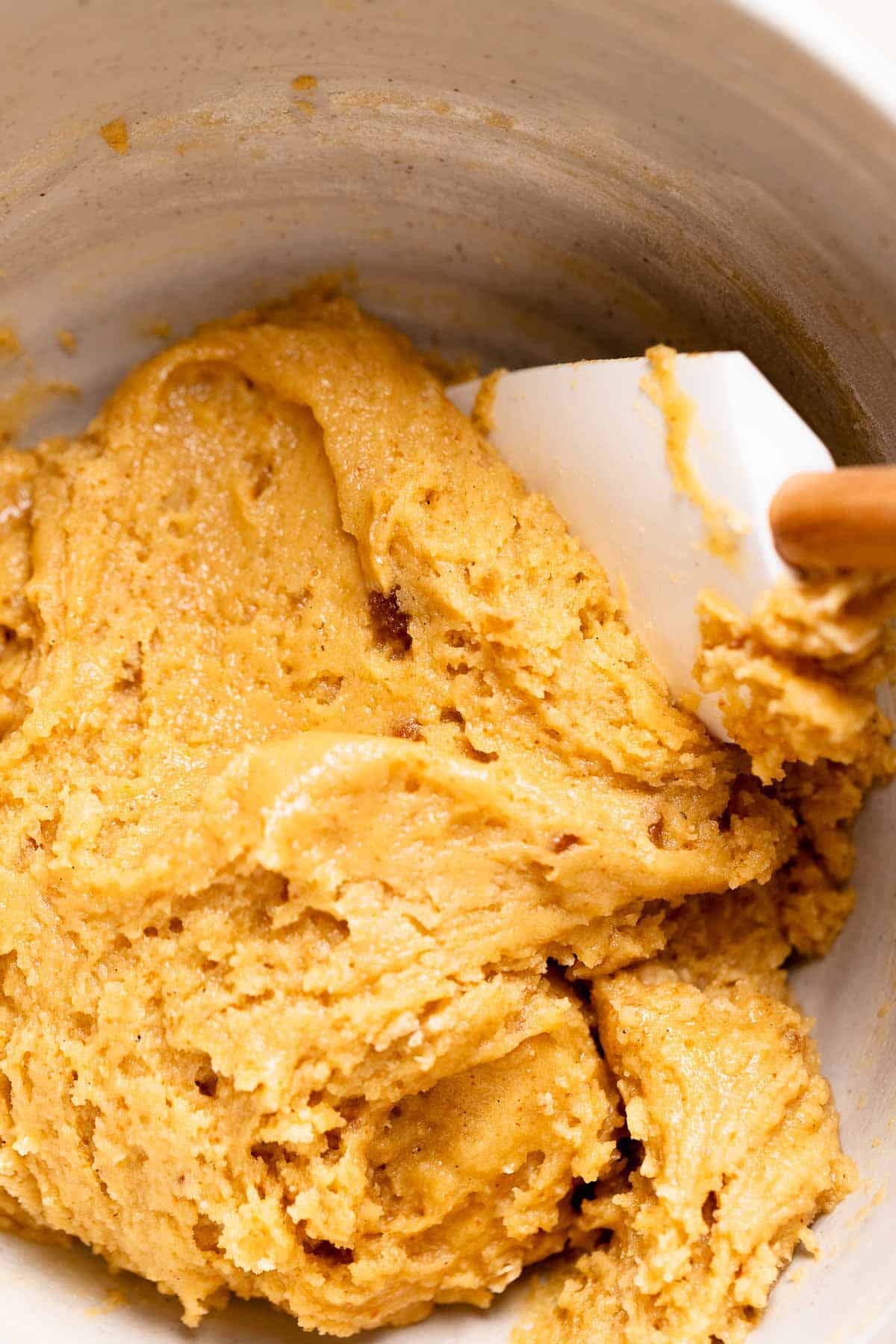
4
Fold in the dry ingredients. Afterwards, set the bowl aside for 15-20 minutes. This helps hydrate the flour and makes the dough easier to scoop!
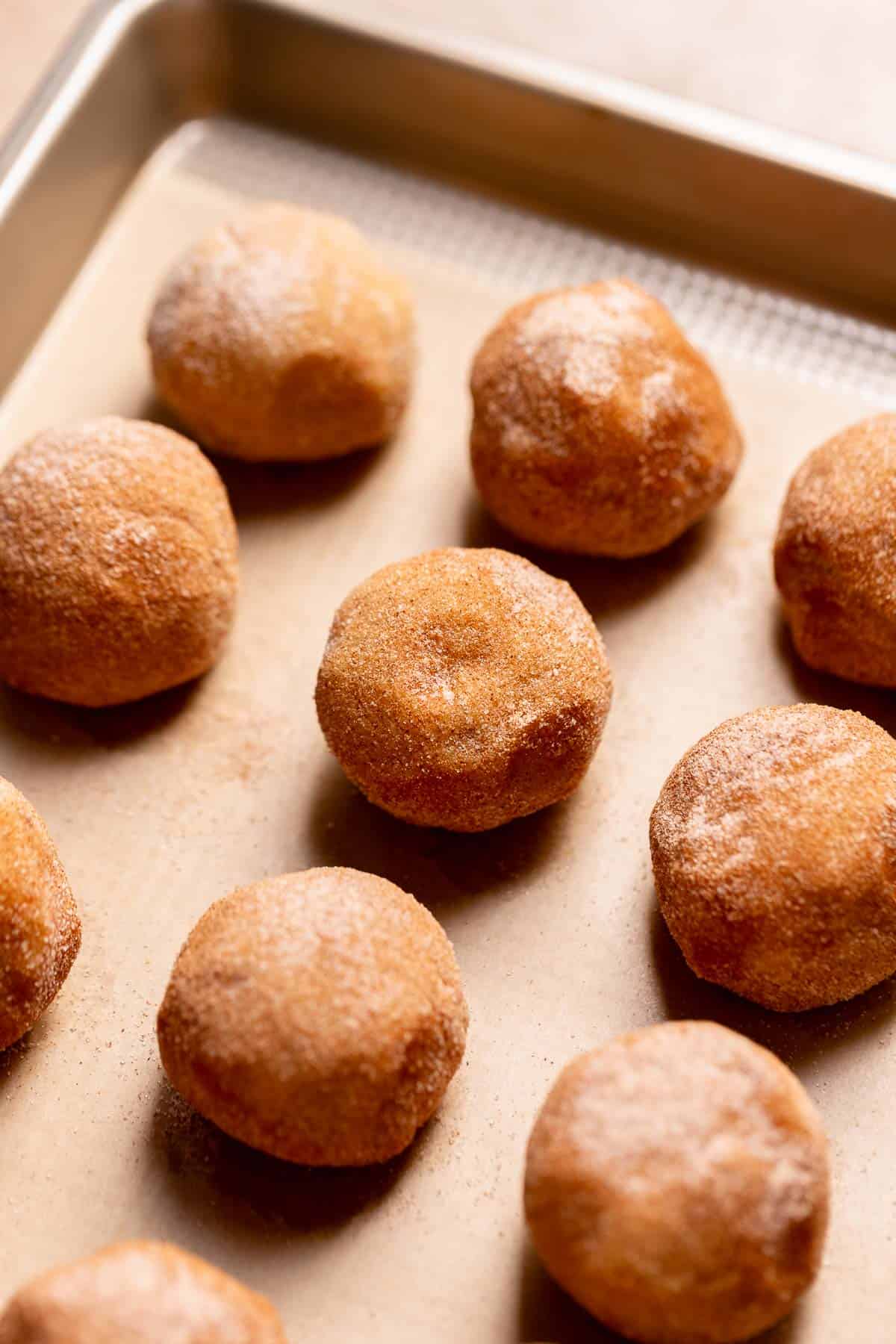
5
Scoop the cookie dough, then roll in cinnamon sugar. For ease, use a large cookie scoop, rolling each one between your palms, then rolling them in the cinnamon sugar.
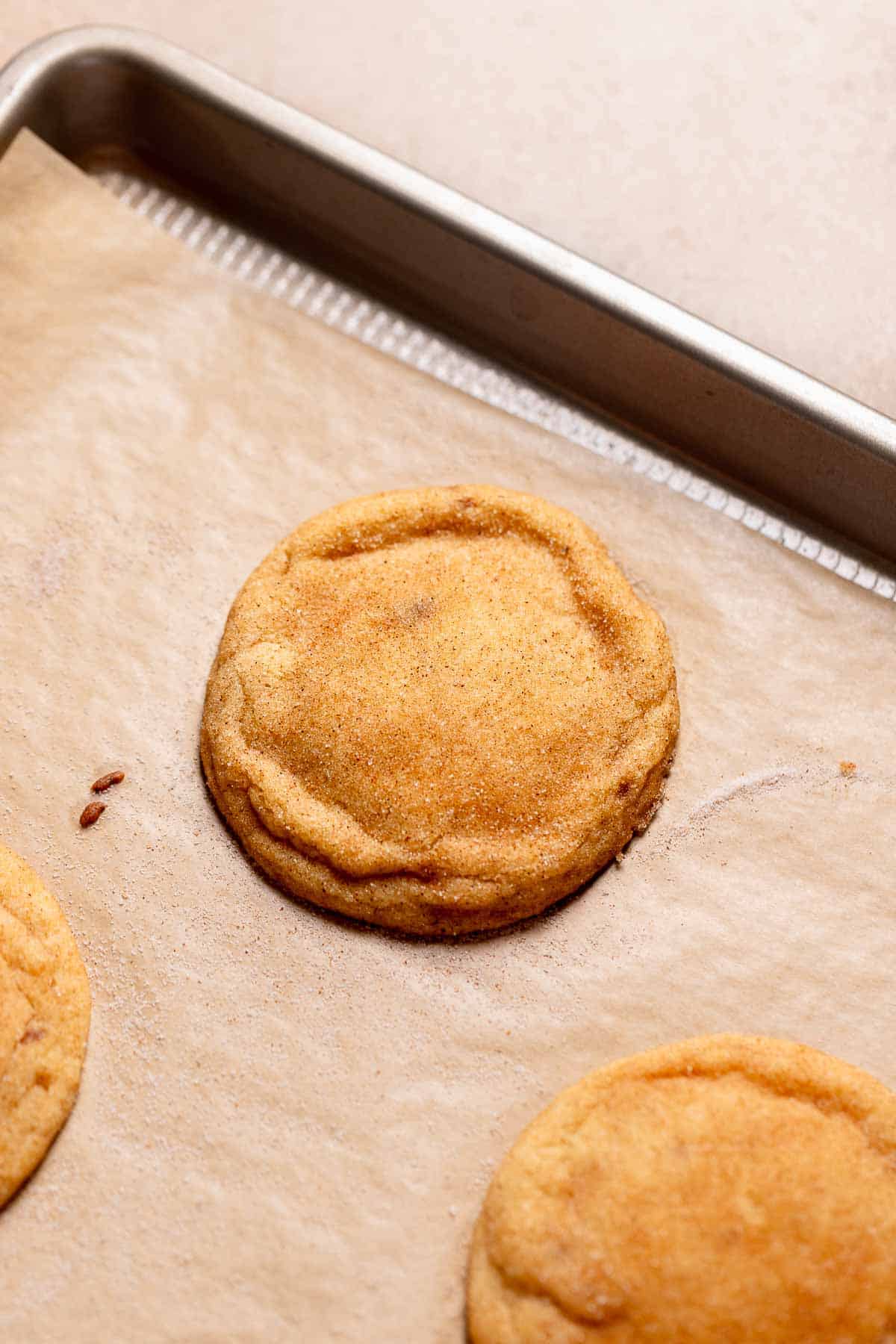
6
Bake the cookies. You’ll know they’re done baking when the edges are lightly crispy and golden brown, but the middles are soft and puffy.
I love how easy this recipe is, especially when I need dessert ASAP! My chewy brown butter chocolate chip blondies are just as easy, so make sure to try them next!
Ingredient Substitutions
European butter: A butter like Kerrygold is key to the cookies’ rich, buttery flavor. American butter can be used, but it won’t have the same flavor.
Vanilla bean paste: This ingredient is packed with more vanilla flavor than traditional vanilla extract. If you only have extract on hand, it can be used in equal substitution.
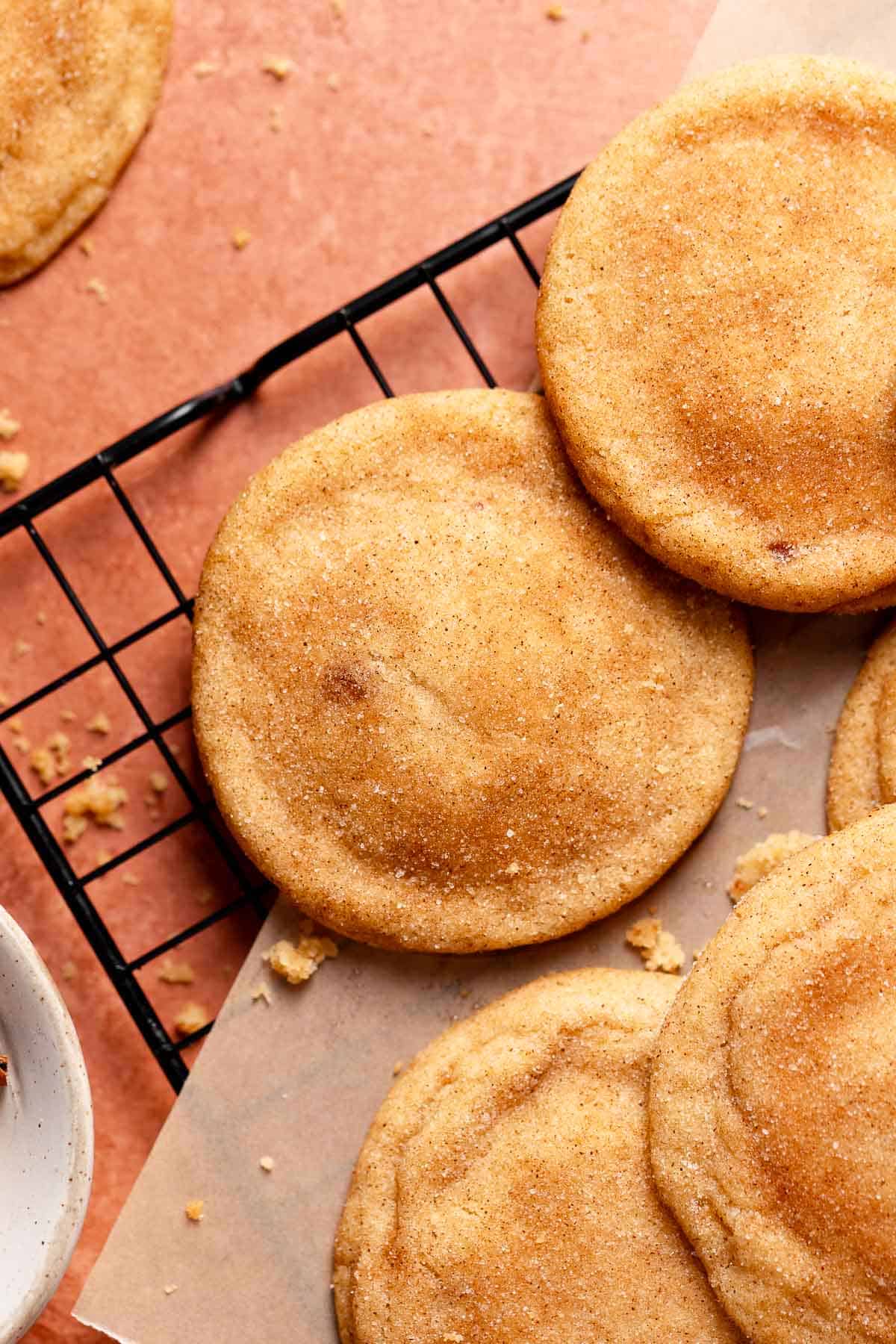
If you tried this or any other recipe on my website, please let me know how it went in the comments; I love hearing from you! Also, please leave a star rating while you’re there! You can also tag me on Instagram or Facebook so I can check it out!
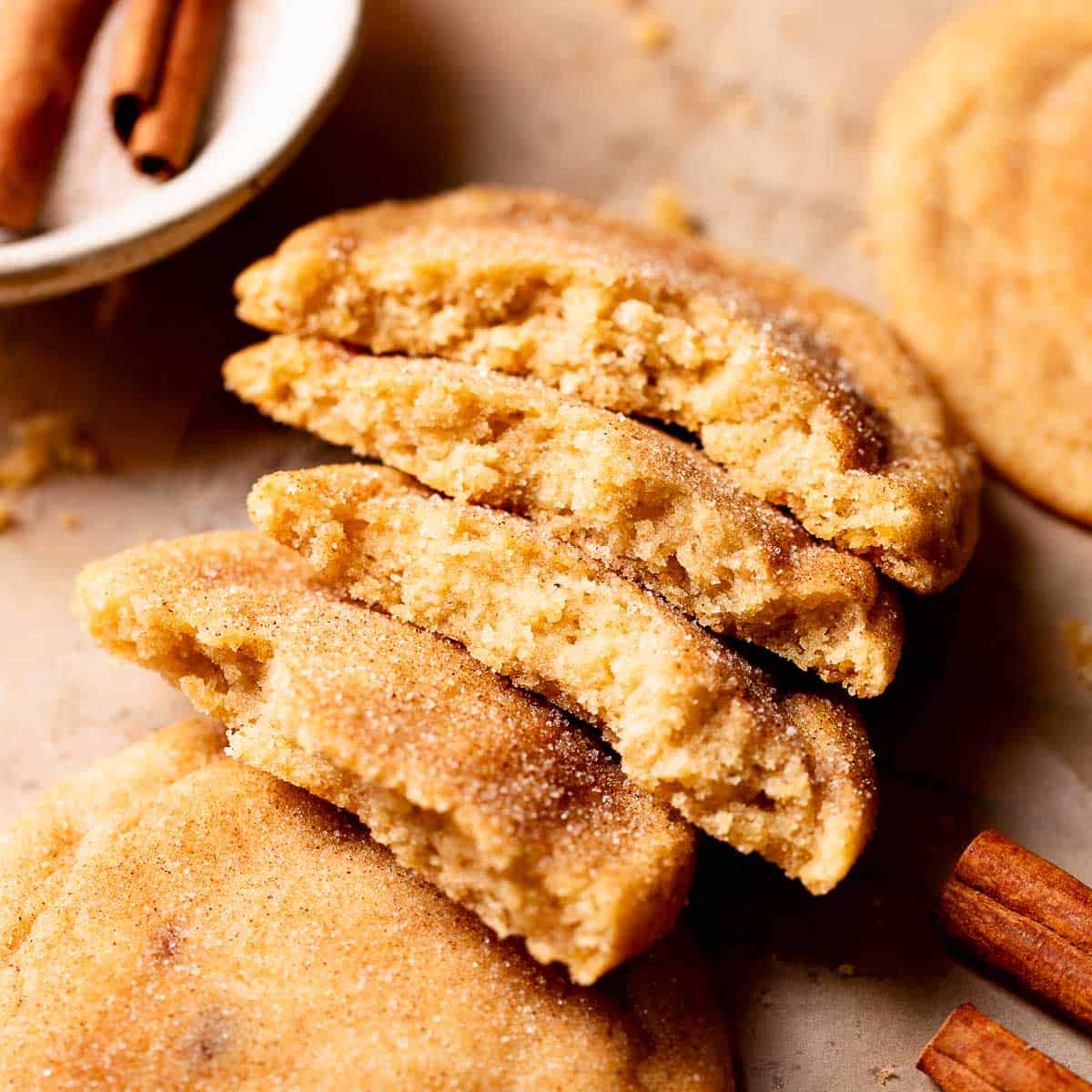
Brown Butter Snickerdoodle Cookies
Equipment
Ingredients
- 14 1/2 tablespoons salted European butter, *See notes below*
- 1/2 cup granulated sugar
- 1/2 cup + 2 tablespoons light brown sugar, packed
- 1 large egg, room temperature
- 1 large egg yolk, room temperature
- 2 teaspoons vanilla paste, or extract
- 2 cups all-purpose flour, *See notes below for measuring*
- 1 1/2 teaspoons cream of tartar
- 3/4 teaspoon baking soda
- 1/2 teaspoon baking powder
- 1/2 teaspoon fine sea salt
- 1/4 cup granulated sugar, for rolling
- 2 teaspoons cinnamon, for rolling
Instructions
- In a stainless steel pan, cook the butter over medium heat, stirring occasionally, until it looks foamy, smells nutty, and the bottom is covered in amber brown milk solids.14 1/2 tablespoons (202 g) salted European butter
- Take the pan off the heat and pour the butter into a large bowl. Make sure to scrape all of the butter and browned bits from the pan with a rubber spatula. You should have about 170 g or 3/4 cup browned butter. Let the browned butter cool until it feels room temperature. The time it takes will depend on how warm your kitchen is; for me, this takes about 45-60 minutes.
- Preheat the oven to 350 F/180 C and line 2-3 baking sheets with parchment paper.
- Whisk the brown and white sugar into the browned butter.1/2 cup (100 g) granulated sugar, 1/2 cup + 2 tablespoons (128 g) light brown sugar
- Whisk in the egg, egg yolk, and vanilla.1 large (50 g) egg, 1 large (18 g) egg yolk, 2 teaspoons vanilla paste
- Use a rubber spatula to fold in the flour, cream of tartar, baking soda, baking powder, and salt until just combined. Set the bowl aside for 15-20 minutes so the dough is easier to scoop.2 cups (260 g) all-purpose flour, 1 1/2 teaspoons cream of tartar, 1/2 teaspoon fine sea salt, 3/4 teaspoon baking soda, 1/2 teaspoon baking powder
- In a small bowl, mix together the sugar and cinnamon.1/4 cup (50 g) granulated sugar, 2 teaspoons cinnamon
- Scoop the dough into 3 tbsp (66 g) sized portions and roll them in the cinnamon sugar. Place them on one of the lined baking trays (only 6-7 cookies per tray). Bake for 8-10 minutes or until the edges are light golden brown with soft and puffy centers.
- Let the pan cool on a wire rack for 5 minutes, then transfer the cookies with a spatula to the rack to finish cooling.

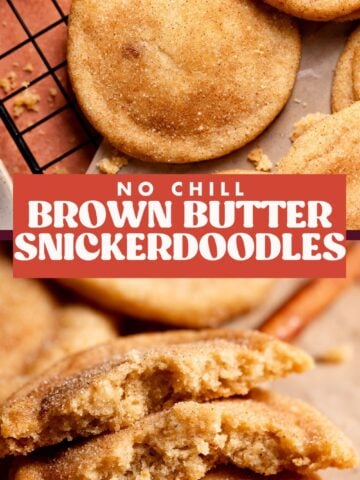
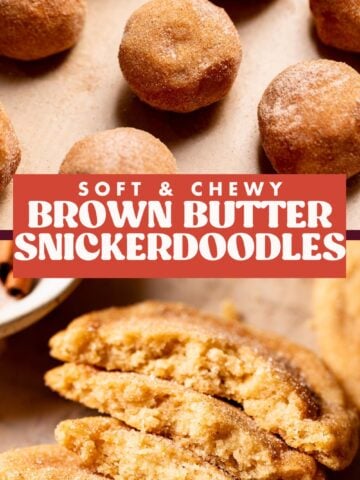

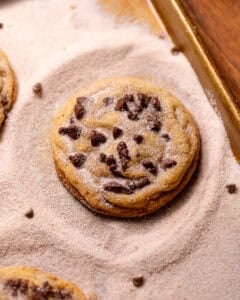
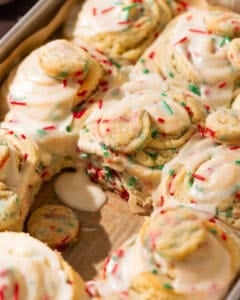
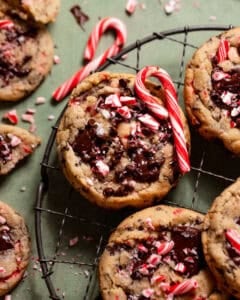
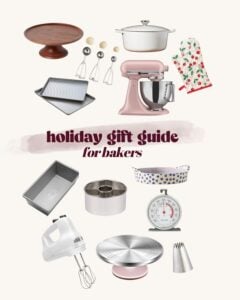







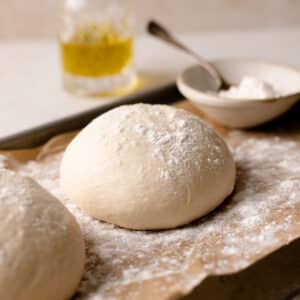
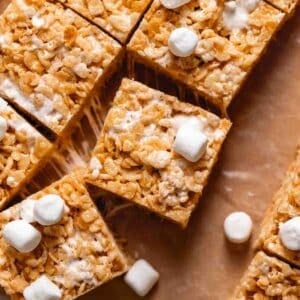
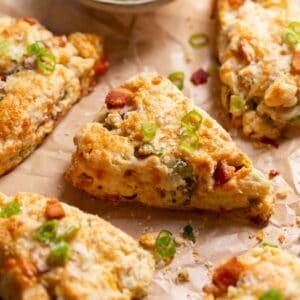


Cookies had a great taste but I would not use salted butter and baking soda next time they were way too salty
Hi Krystal, the baking soda doesn’t have anything to do with the salt content. I would eliminate the added salt if they were too salty for you!
Forgot my star rating. 😉 See my comment and question on the next comment. Thank you!
No worries at all, thank you for coming back to leave a rating! I’ll check out your next comment and get back to you there. 😊
Hi,
Thank you for this incredible recipe. Have you ever tried as a gluten-free recipe? If so, what flour blend did you use?
Thank you! Love this recipe.
Julia
So happy you’re loving the recipe! I haven’t personally tested a gluten-free version, but I’ve heard from many readers that Bob’s Red Mill 1:1 gluten-free flour works really well with it. Let me know if you give it a try! 💛
I have made this recipe multiple times and it’s a hit! Can I freeze the little balls in an air tight container for later cooking?
Yes! I would just bring them to room temperature before baking 🙂
Would this recipe work for simple cutout cookies without spreading too much,? If so, what steps would I need to take?
Hi Melissa! I don’t recommend this dough for cutout cookies, they will spread a ton!